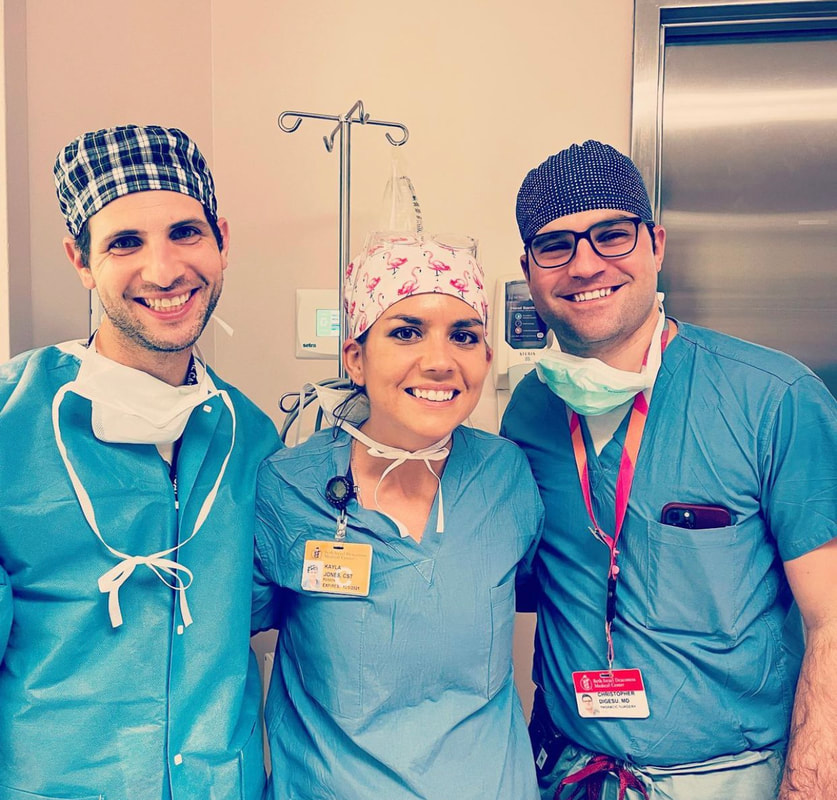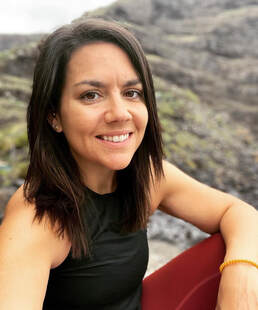 Have you ever had a sentence leave your mouth and immediately you knew what the next question would be? I can almost guarantee that most of us do. For me, it’s almost always after I say “I’m a travel scrub.” The response? “A what?” There’s a very common way to explain what a scrub, or more formally a Certified Surgical Technologist or Surgical Technician (dependent on certification status) is. That’s to use probably the one example that my fellow scrubs have also probably employed themselves. Here it goes.... You’re watching any medical drama on TV. An emergent, life saving surgery has to be performed on a patient. They are rolled in and the surgeon is gowned and gloved and walks up to the operating table and says two words, “Scalpel please.” The one with the scalpels? You guessed it, that’s me. In the world of medical professions, scrubs are the North America to nursing’s Great Britain. What used to be a specialty of the nursing profession has branched off into its own profession, mostly due to how specialized surgery in of itself has become. The training used to be strictly on the job, but now has its own accredited technical programs, clinical experiences, and certification exam. Surgical technologists are trained in surgical procedures, surgical instrumentation, and sterile technique as the cornerstones of the profession. Secondary to those are pre and post operative care and sterile processing. There’s a rumor out there that we’re also knowledgeable of how to put in Foley catheters, but that’s something none of us can confirm or deny. After training is complete, a new scrub can pick from more than a few types of facilities to begin their career. These include, but aren’t limited to outpatient surgery centers, hospitals, ophthalmic surgical centers, private practice surgery centers, and organ procurement centers. For me, my love of open heart surgery sent me down the path towards my “home facility” in FL. A level 2 trauma center that oriented you in every specialty they performed, which looking back has been instrumental in my path as a traveler as it prepared me to be adaptable in any number of situations I could come across. Travel was something that I learned about early on in school. We had been told about the possibility to pick up and float around the country, choosing your destination at will and earn twice the amount you would as a staff scrub, which of course sounded phenomenal. Not only that, but when I entered clinicals and later the field as a staff scrub, the travelers who came to my facility had a confidence about them that I wanted. They enjoyed what they were doing and had a joy about them I craved in my own life. I had no idea how to even start the path to becoming that person. Enter my orientation into open heart surgery, and that’s when I got my first taste of what it was like to be a traveler. My first choice was always open heart surgery. It was seen as the hardest specialty to get into, and almost impossible to gain a spot on the open heart team where I had taken a job. However, as luck would have it, there was a spot that had opened when I graduated from my program. I made my way through every specialty before reaching my goal, the open heart room. My very first day I scrubbed across from my primary preceptor, and watched as she passed a Coronary Artery Bypass Graft (CABG) without so much as being asked for a single thing from the surgeon. I touched almost nothing, and instead was just there as a silent pair of eyes and ears, soaking it all in. The very next day, through a course of random circumstances, my other preceptor came in that morning and told me that I would be first scrubbing, which I had watched his partner do the day before. At first I laughed, but then when I noticed he wasn’t joking, reality set in. I hadn’t done anything in the heart room up until that moment, and now I would be doing the whole thing from start to finish. To complicate the matter more, my surgeon that day was left handed and spoke with a very heavy Indian accent. Over the next few hours my preceptor calmly talked me through the CABG while first assisting himself, and at the end of it I was told I would “do alright” in the heart room. Seven months later when I decided I would begin traveling, the only thing my preceptors had to say to me was, “well I guess we trained you to do that from the start.” So how does that relate to being a traveler? That very scenario has played out countless times in the over 5 years I’ve traveled. However, instead of someone talking me through every step, it’s usually the surgeon expecting through a mixture of experience and fast reflexes that I can keep up and keep them moving. At some places I’m given a few weeks of help from another scrub, while other times it’s 2 days and then I find myself on call with a surgeon I’ve never met. The minimum of 2 years experience is a tricky one for scrubs, in that we only know what we’ve seen. You can spend your whole career in one facility, but if they don’t do heart transplants, then you’ll never know how to perform the surgery despite how many years you have on the resume. The first time I did an LVAD implantation? It was 1 am on a Tuesday, and I had to go based on limited knowledge from what I had seen previously through OR windows and lunch reliefs. My first heart transplant was on a weekend and after seeing two be performed I was then on my own, again in the middle of the night. The first time an aortic root blew up and the chest of the patient filled with blood in less than 10 seconds, I had just finished a full shift and hadn’t eaten in hours. Working off adrenaline and reflexes, we were able to get the patient on bypass and off the table hours later. These are all worst case scenarios, but in a perfect storm, they can happen in a second. Oftentimes when they do, everyone in the room starts moving quickly and speaking loudly, and some version of panic will set in. The scrub is in the middle of it all and is the one who is moving quickly but silently, drowning out everything and saying nothing unless they need something from their partner, the circulating nurse. When a life hangs in the balance, and your status as the traveler goes out the window, it is in that moment that your voice is heard through your skills in the operating room world. At that time you are the person who the surgeon has to rely on to stay ahead of what he wants without him telling you, while simultaneously tracking everything going in and out of the patient’s body to make sure nothing is left behind. Making sure that everything you will need in the next 15 minutes is ready to go, while also organizing instruments as they fly out of your hands and into the surgeon’s and then back at you. It can be terrifying and exhilarating at the same time. Oftentimes there is no thinking, there is just blind reacting and relying on what you know to get you and the surgical team through. All of this despite the fact that the surgeon may only just know your name and that you didn’t hand him the scalpel backwards a few hours prior to that. That is the trust that’s put in you as a travel scrub, and even the most simple of cases can go wrong in the blink of an eye, which forces that trust into the forefront of the surgical team. Unfortunately, because of the nature of scrubbing, most of the time you’re in rooms and don’t have much time to socialize, and sometimes you’re the only traveler in the whole operating room floor. Over the years I just accepted that while I had found financial freedom through traveling, and was able to live in places I’d never imagined, the loneliness and isolation of being “different” than everyone else was part of the lifestyle I had chosen. Thankfully, I was very wrong about that. I spent a lot of time doing things alone, and didn’t know how to find or connect to other travelers. I would make friends with some permanent staff members, most often the ones who wanted to also travel one day, but that was about it. It all changed when one of those very staff nurses took the leap and became a traveler herself. In 2021 we attended TravCon together, it being my first, and it being her second time in Vegas. Over the course of the next few days we met countless people who she had connected with, or who had connected with someone who had connected with someone else all through this app called Medventure. In a single 4 day stretch my world went from small to expanded beyond what I thought was possible. It was no longer taboo to talk about the adventures you’d gone on, or the things you wanted to do. Rather it was celebrated and everyone around you wanted to live life to the fullest as well. There was no animosity or judgment, there was only understanding and the ability to finally relax because you were surrounded by the best kinds of people, the ones we call travelers. Our people. I came back to Boston after Travcon with a new fire to connect with other travelers, to share what I had experienced and to make sure I did everything I could so that no traveler felt isolated for being a traveler. The Medventure App was the easiest way to accomplish that. Finding other travelers who were in Boston was easier than ever before. A Facebook group did exist for Boston travelers, but it wasn’t ever successful in getting travelers really connected and getting together. Through another connection I had made at Travcon, and during brunch at a Medventure meetup, a small group of travelers began the first east coast Travelnurse Takeover group for the city of Boston.this supplemented the meetups and allowed deeper connections, turning the group very quickly into a family. Dinners, bar crawls, game nights, and everything else started to pop up on Medventure and the world of traveling continued to shrink. I knew that those friendships would forever impact me so that I’d never feel alone again. The events of Medventure and the discussions on the TNT groups aren’t temporary either. Since leaving Boston, the family I became a part of continues to connect with me and others who have left the city. The connections I made at TravCon enabled me to have friends in places I would have otherwise seen alone. I’ve traveled to cities just to explore for a few days and because of the established travel communities there, left with even more new friends. These are friendships that will last because at our core, it doesn’t matter if we are nurses, scrubs, physical therapists or radiology techs; what matters is we are travelers. We all want to see the world, set financial freedoms for ourselves, and help others through the avenues we’ve specialized in within the medical field. We want to connect to those who see us for who we are, and not just our label as travelers. Traveling doesn’t have to be lonely anymore for scrub techs, and thankfully now, more than ever, it’s possible to make it so it never is. Written by Kayla Jones, Travel Certified Surgical Technician/ MedVenturist
1 Comment
3/29/2024 01:15:59 pm
In the world of medicine, I came across the term "Travel Scrub" and had to look it up! It seems to refer to a surgical technologist who works on temporary assignments at different hospitals. They basically assist surgeons during operations, but unlike regular surgical techs, they travel from place to place for contracts. Sounds like an interesting way to see the country while using your medical skills!
Reply
Leave a Reply. |
Archives
October 2023
|


 RSS Feed
RSS Feed


